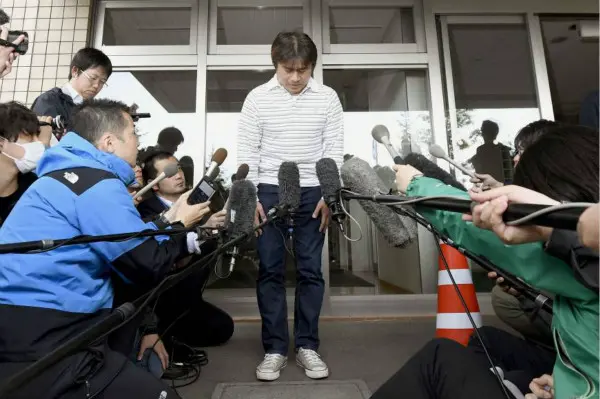Japan let out a sigh of relief Friday after a 7-year-old Hokkaido boy was found alive following an intensive six-day search by hundreds of police, firefighters and Self-Defense Force troops.
But the case has spurred intense debate about parenting norms and the often murky line between discipline and neglect in this country.
Many parents and child care experts agree that the father of Yamato Tanooka, of Hokuto, Hokkaido, went way too far in leaving him alone in the woods, even for five minutes. The family said they briefly left him alone on a mountain road in Nanae, near the city of Hakodate, in punishment for throwing stones at cars and people. The area is thickly wooded and is known to have bears.
But some have expressed sympathy for the father, who directed an apology Friday in front of TV cameras to his son, the rescue workers and society at large.
Asa Kanaami, 30, from Tokyo’s Minato Ward, said she was relieved to hear the boy was found alive, adding that she would never discipline her 9-month-old daughter that way.
“When I was a child, my parents used to tell me they would leave me on the streets if I did something bad. But I believe that could only work if they watched me carefully,” Kanaami said. “I think the father was to blame for leaving the boy for even five minutes without monitoring.”
She added that in a society where grievous crimes are increasingly common, leaving a child unwatched is a risk no parent should take.
A couple with a 4-month-old daughter, also from Minato Ward, were more sympathetic, saying what happened in Hokkaido could happen to any family.
“Every parent may have disciplined kids this way,” said the father, who declined to be named. “Everywhere on the street you see parents telling their children that they will leave them there if they don’t stop crying. What happened to the Hokkaido boy was similar to that — the only difference was that it happened in the mountains.”
The mother said it is hard to draw a line between discipline and child abuse.
“I may do the same thing when our daughter grows up and gets out of control,” she said. “If there are professionals who can explain how to discipline kids, I want their advice.”
But some foreign citizens in Japan took a harsher line on the parents.
“While the parents may feel regret now, what’s to say they won’t do this again?” asked American Matt Apple, 43, an associate professor at Ritsumeikan University in Kyoto Prefecture, and a father of two girls, aged 7 and 4.
“The best punishment is to take the child away and place him with foster parents — but, of course, there is no foster parenting system here, only a limited number of orphanages.”
Canadian Vivian Morelli, a 36-year-old mother of a 6-month-old boy, said the case is clearly one involving child abuse and neglect.
“I do believe many parents lack adequate mental support and help in Japan,” the Tokyo-based freelance journalist said.
“I think that could lead to child abuse, like in this case. For parents to get to that point, it’s not just bad parenting, it’s a deeper issue … involving psychological troubles.”
Ryoichi Yamano, a professor of child welfare at Nayoro City University in Hokkaido, said the case is an opportunity for parents to reflect on child-rearing attitudes that have long been taken for granted.
“Even today, it is not uncommon for parents to kick children out of the house and leaving them outside the door as punishment for misbehavior,” Yamano said.
The welfare ministry considers leaving children outside under harsh conditions, such as in cold weather, a form of physical child abuse, Yamano said, noting that many parents are unaware of this.
Yamano said tolerance in society for keeping children unsupervised varies greatly between Japan and the West.
“It is not uncommon for children aged 4, 5 or 6 to stay at home alone in Japan,” he observed. “Part of it is that Japan is a safe country and leaving a kid alone does not translate into an immediate risk of kidnapping.”Yamano added that just criticizing the parents is not enough.
“Some parents have no option but to leave their children at home alone at night because they have to go to work. Labor conditions for some parents are very bad in this country. Expanding the definition of neglect and abuse alone is going to corner such parents further.”
Tetsuya Ando, founder of Fathering Japan, a nonprofit organization that helps fathers take a more active role in parenting, said the “tough father” attitudes are often taken by people who are raised in patriarchal families themselves.
“The important thing to do is to treat your child with respect instead of just giving orders from above,” he said.
“Each kid is different. What we have done in our family is, when the mom gets angry and snaps at one of our kids, I would explain privately later why she snapped the way she did, and try to discipline with words.”
(The Asahi Shimbun)
 简体中文
简体中文





